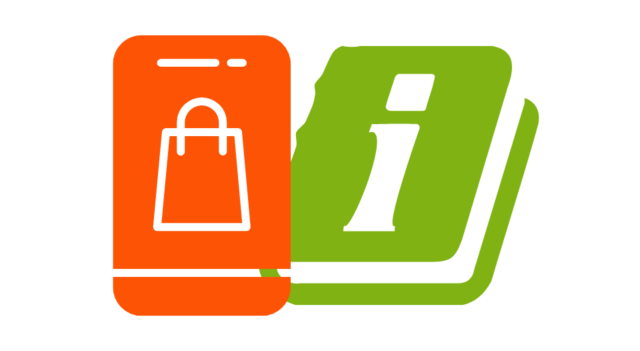Article by Navneet
Founders looking to take their business to the next level – proper Shopify bookkeeping might be the boost your business needs.
Many business owners brush aside just how important bookkeeping can be. Keep reading to find out how not maintaining Shopify books could be a big mistake for your ecommerce business.
Table of Contents
Recap: What is Bookkeeping?
Bookkeeping is financial record keeping for a business: how much money is coming in or out, to and from whom, amounts owing, and other areas such as payroll.
A bit dull – right – but this sets the foundation for your business. A founder who doesn’t know what’s going on under the hood of her business can’t make effective decisions, it’s like a maestro directing an orchestra without knowing what instruments are available.
For Shopify businesses, which are sales-heavy, good bookkeeping allows you to always stay on top of what’s going on. For these businesses, cash flow is lifeblood, and keeping the books for Shopify allows you to keep your hand on your online business’s pulse.
Bookkeeping for Shopify businesses will require you to:
- Record your sales and track invoices (weekly, monthly, or quarterly)
- Monitor your preferred payment account, whether it’s PayPal or your bank
- Record your own payroll, including your employees (if you have any)
- Generate invoices in order to get paid on time
- Track your sales progress, including depreciation
- Produce accurate, up-to-date, and accessible financial reports
As you can see, bookkeeping is really a critical function for your business.
What Does Bookkeeping for Shopify Help You Keep Track of?
Let’s get into the nitty gritty, once you start properly bookkeeping, what exactly will you be keeping track of?
We’ve broken it down into the main parts:
Your Business’s Balance Sheet
Every business has a balance sheet, not just Fortune 500 companies. We can divide the pieces that make up your balance sheet as assets, liabilities, and equity.
Assets: Basically, cash and anything you’ve spent money on that will either help your business’s operations or increase its value. This could be things like computers, your website, and of course your inventory itself.
All these things cost money but you buy them because they will benefit your business.
Liabilities: These are things you owe, such as supplier financing, short term loans, and salary payments outstanding.
Equity: This is the amount left over when you subtract your liabilities from your assets. It goes without saying that if this number is negative, you’re in trouble!
Bookkeeping also lets you keep track of cashflow, the lifeblood of a business. Cashflow is usually broken down into revenue and expenses.
Revenue: Think of revenue as your sales, but how much cash you received from your sales rather than items sold. A shop with one sale a month and another with 50 sales a month can come up to the same amount of revenue.
Expenses: If revenue tells you how much cash is coming in to your bank account, then expenses tell you how much is going out. If you spend more than you make, your business is sure to run into problems, and keeping track of these metrics is one of the best ways to avoid such a situation.
Finally, bookkeeping can help you track Key Performance Indicators (KPIs). For every business these are different, but they are important to track. Think of KPIs as a roadmap for your business. After all you will be selling a product or service, how are you going to measure how successful you are at that, other than cash in the bank (which may not tell the whole story).
Common KPIs are monthly recurring customers, average amount of items bought, and even geographic location of customers in some cases. All of these can easily be tracked within a good bookkeeping system.
Which Platforms Work Best When Bookkeeping for Shopify?
Now that you’ve understood all the benefits bookkeeping can provide your business, the big question is: What platform should you use?
This is an important question as you will start building a system around this platform and likewise build your business around it. While of course, it can come down to personal preference, we know our preference. As with any comparison, it’s important to make note of all the strengths and weaknesses of each platform.
Freshbooks:
Price: $15/month
Features: Mobile app, automation, simple importing process, custom permissions (for example for employees), direct Shopify integration.
Sunrise:
Price: $160/month
Features: While more expensive, this is aimed at those with an accounting background, as such is packed full of advanced features.
Zipbooks:
Price: $15/month
Features: Aimed at first time bookkeepers, keeps interface as simple as possible, no Shopify integration, barebones reports
Kashoo
Price: $16.65/month
Features: Machine learning algorithms that learn about your business the more you use it, makes recommendations, no direct Shopify integration.
Quickbooks
Price: $12/month
Features: Direct Shopify integration, specific packages to suit every stage of business, built-in tax management, connects with bank accounts to automatically generate reports and insights.
While no means exhaustive, these are some of the more popular and established options.
Our personal pick has to go to Quickbooks which strikes that perfect balance between low cost and full features – something you generally need to compromise on. It’s also a small business standard and having direct Shopify integration will also make managing your ecommerce business all the more easier.
Because it’s our favourite platform, we want to show founders just how powerful Quickbooks can be when properly integrated with their Shopify business.
QuickBooks and Bookkeeping for Shopify
It’s no coincidence that we highlight Shopify integration so much. We think this is a crucial part of setting up an effective Shopify accounting system that works for you, not the other way round.
Think of other platforms that don’t have integration. Often this means exporting all the data from your Shopify store and importing it externally. While it doesn’t sound like much, it really is just an extra step that a busy founder can do without.
It goes without saying that exporting and importing data has its own issues too, such as losing data, data being imported incorrectly. What will you do six months down the line when you’ve realised your accounting software is missing a crucial transaction?
With a platform like Quickbooks by comparison, you’re managing everything under one room, seamlessly. This way your platform is always up to date and in sync without you having to worry about it.
In general, we think you should allow as much access as possible as it will only make your life easier. When it comes to syncing – a business that moves hundreds of items a day is much more in need of a daily sync than a business that moves one big ticket item a week.
Some of the most important features an ecommerce founder will find with Quickbooks are:
- Automation options. Where you can manage your vendors and automate payments to them.
- One click reports. Quickbooks produces easy to understand insights through graphs and reports on every conceivable metric in your business, all at the click of a button.
- Income/Expenses. Link your bank account for real time views of the cash coming in and out of your business. You could do this through your bank, but Quickbooks also generates intricate reports so you can really stay on top of it.
Price Packages
We’ve already told you that we believe that Quickbooks is the best option for an ecommerce business but Quickbooks offers numerous packages, each at a different price point.
We believe there are three packages you, as a business owner should look at.
The Simple Start package is the cheapest at $12.50/month and the lightest on features. If you’re just starting your ecommerce journey or planning to set up your online shop, we definitely recommend this package first.
It doesn’t offer all the tools a fully functional business needs, but for something just starting out, it’s a great way to try out Quickbooks.
Established ecommerce business owners should focus on the Plus and Advanced packages. The Essentials package is one tier above Simple Start, but for an active business, the Plus package more than makes up for its increased cost.
With Plus you can track employee statistics, and run reports on a project by project basis — a gamechanger when you are planning to bring out new lines or product categories. Plus also gives you a suite of more in depth reporting tools, allowing you access to a range of data analytics.
If you plan to turn your ecommerce business into a large enterprise rather than a side-hustle, we think that you need the Advanced package because of its advanced features.
Advanced can handle large volumes of lists and data across multiple sales channels and can easily aggregate all that data or give a per-sales channel breakdown. This type of centralized reporting with on demand data at your fingertips is crucial for aggressive growth.
Advanced users also get access to Fathom, a smart reporting software that allows users to analyze total inventory turnover or by categories. From there, you can break down all the data concerning your inventory to maximise profits.
Getting Started with Maintaining Shopify Books
Shopify Bookkeeping Step One: Select a Bookkeeping Software
This step is pretty self-explanatory. Scroll up to look through our recommendations, but we’re not shy about claiming Quickbooks as our choice. For businesses with less than three products, you can easily connect this with your inventory list, to manage your inventory in real time and calculate your margins and profits. However, if you have a large inventory we recommend using specific inventory tracking software.
Shopify Bookkeeping Step Three: Record ALL of your Transactions
Your books are only as good as your bookkeeping process. We’re real bookkeeping hardlines in that we think if you’re not going to do it right, you might as well not do it at all!
If you miss transactions and think it’s no big deal, you’re just giving yourself the false illusion of order. Imagine then that the tax man comes knocking over a very specific transaction you just happened not to record – we wouldn’t want to be in that position and neither should you.
Because this is such a crucial and detail oriented step, we highly recommend outsourcing to a virtual ecommerce bookkeeping service provider. They’re experts, so will often do a much better job than you will at a reasonable cost.
Shopify Bookkeeping Step Four: Categorize all of your Transactions
We alluded to this before, but part of a good bookkeeping system is being able to get all the most critical information at a glance is crucial. Most software offerings allow you to input lots of data for each vendor, including where the vendor is located, the cost of deliveries, how often your purchases are etc.
This categorization is key in managing your supply chain and the same logic goes for your sales. Categorization is the foundation for deeper analytics. Get lazy here and you rob yourself of a tremendous business tool.
Shopify Bookkeeping Step Five: Reconcile Shopify Payments
Reconciliation is a critical part of your bookkeeping and occurs when you compare your transactions in your bank account to your business transactions. Why this is important is that oftentimes, the two might not match up due to charges from payment processors that weren’t recorded.
Shopify easily lets you export all your transaction summaries with reconciliation charges attached as a .csv file ready to import into your bookkeeping system of choice and if your software has integration, like Quickbooks, this step can be done completely in-app.
Shopify Bookkeeping Step Six: Set Up a Payroll System
No self-respecting business does payroll by hand anymore, in fact, we shudder to think about how painstaking that must be. Do yourself a favour and let your bookkeeping software automate the process for you.
Shopify Bookkeeping Step Seven: Establish Sales Tax Procedures
If you want your business to have any chance of long term success, you need to stay on the right side of the tax law. Now we know, this is surprisingly easier said than done, especially with ecommerce, where cross-state sales are common.
Shopify works with most softwares in a way that allows you to seamlessly calculate all sales taxes on a per-sale basis. Set this up properly first to be sure that you are paying not too much or too little.
Shopify Bookkeeping Step Eight: Determine your Tax Obligations
Sales tax is only one part of the rubik’s cube of taxation, but don’t forget payroll taxes, corporate taxes, and your own income tax. Software such as Quickbooks can make calculating your tax a whole lot easier.
Often, if you record your transactions properly, by the end of month, your system will be totally up to date with taxes that are due.
Shopify Bookkeeping Step Nine: Calculate Gross Margin
Between the cost of goods sold, payment reconciliation and other costs, it’s easy to mis-calculate your actual margins. Software such as Quickbooks automates all of this for you. Just make sure you set up your categories properly beforehand, and your software of choice will be able to factor in all additional costs to get you your real margin.
Shopify Bookkeeping Step Ten: Periodically Re-evaluate Your Methods
We kept advising to prepare in advance in all of these steps, but business is constantly changing. That goes for bookkeeping, too.
You need to periodically make sure everything is up to date and that the way you are tracking your payments is proving effective. If you hire a great ecommerce bookkeeper, they’ll do this for you.
Bookkeeping For Shopify FAQs
What Accounting Software Works Best with Shopify?
Not all software offerings have built-in Shopify integration. You can always export data out of Shopify and manually import it, but really why bother when there is software that does this automatically?
As we have said countless times before, Quickbooks once again wins out here with a number of features ecommerce businesses can benefit from.
Can I Connect Shopify to QuickBooks?
Yes. Quickbooks is one of the software providers that makes built-in Shopify integration a breeze so your Quickbooks will be updated in real time with sales from your Shopify store.
You can also automatically sync both applications, have mobile access to all your transactions and manage your taxes and fees in a seamless way.
All of this and we haven’t even begun to talk about the numerous third-part applications to make the Shopify experience even better through Quickbooks.
Does Shopify do Bookkeeping?
While Shopify does provide the basics of all your transactions on its platform, you will always need to use a third party to properly analyze it. Not to mention Shopify can’t help you manage payroll, taxes that aren’t sales tax or vendor management. And it’s not going to do reconciliation for you. We highly recommend farming your bookkeeping out to a great virtual ecommerce bookkeeing service.
Get Started Today
Well what are you waiting for?
If you’re new and only planning to start your ecommerce business, this article might be a bit much.
But, getting the process is the key. Not every founder has the time to learn the ins and outs of good bookkeeping principles. That’s why for first-timers we often recommend outsourced bookkeeping for maintaining Shopify books.
Founders have enough on their plate so we firmly believe their attention is much better spent elsewhere when they outsource their bookkeeping to someone properly qualified at a fraction of the cost of an inhouse bookkeeper.
Etail Express is meant to help with this exact problem and we pride ourselves on matching founders with a better alternative to manage their bookkeeping. Click here to see which bookkeeping package is right for your business.



